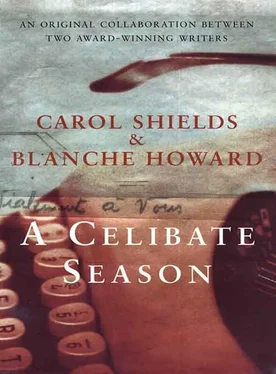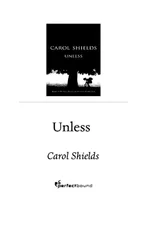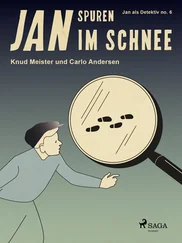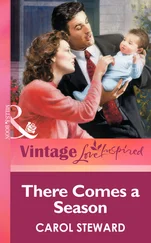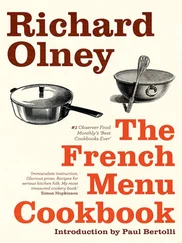A Celibate Season
Carol Shields
Blanche Howard

Dedication Dedication Foreword Dearest Chas, Afterword About the Author Also by Carol Shields Copyright About the Publisher
To Carol from Blanche and to Blanche from Carol,and to the letters woven into the fabric of friendship
Cover Page
Title Page A Celibate Season Carol Shields Blanche Howard
Dedication Dedication Dedication Foreword Dearest Chas, Afterword About the Author Also by Carol Shields Copyright About the Publisher To Carol from Blanche and to Blanche from Carol,and to the letters woven into the fabric of friendship
Foreword
Dearest Chas,
Afterword
About the Author
Also by Carol Shields
Copyright
About the Publisher
Collaborating with
Carol Blanche Howard
Our family has a cautionary tale, part of the family folklore. It seems that two sets of aunts and uncles on opposite sides of the family became fast friends and decided to travel together for three months in Europe. (European travel was considered more exotic then than it is now.) After the travellers returned and my mother phoned to hear all about it, she found that neither couple was speaking to the other. Furthermore, they were never known to speak again. Explanations were not forthcoming. The aunt on my mother’s side confined herself to a disparaging sniff and made remarks about some people not knowing the limits of civilized discourse nor the need to accommodate anybody but themselves. Nothing, as far as I know, ever emerged that was so beyond the pale as to account for the disruption of what had seemed a solidly entrenched friendship.
How much more dangerous, then, is it for two artists to collaborate on a work! Gilbert and Sullivan, for instance, were renowned nearly as much for the depth and ferocity of their animosity as for their witty lyrics, and, indeed, at a forum at the annual Sechelt Writers’ Festival, one of the participants asked Carol Shields if she and her collaborator in A Celibate Season were still on speaking terms.
We were, and we are. Carol’s reputation, when we started the novel, was burgeoning, whereas mine had languished after my three novels were published. I jumped at her suggestion that we do a novel together, recognizing her generosity in wishing to spend time on a work that might very well not further her career, and indeed might use up valuable time more beneficially spent elsewhere.
Carol is generous, and she is loyal. I emphasize this because generosity and loyalty have not been givens among the writerly talented, a goodly number of whom have abused their gifts in the disservice of others. In his final years Truman Capote alienated lifelong friends and benefactors not so much by his drunken and obnoxious behaviour as by the cruelty with which he lampooned them. The Bloomsbury crowd, too, thought nothing of accepting hospitality and favours from the likes of Lady Ottoline Morrell and then, with amusing (in retrospect) bitchiness, or downright malice, cutting her to ribbons. This is Virginia Woolf, in a letter to her sister: “it is said that Garsington presents a scene of unparalleled horror. Needless to say, I am going to stay there,” even though Lady Ottoline is described as being “as garish as a strumpet.”
Carol and I first met in Ottawa in the early 1970s, when a mutual friend took me along to the Shields’ large brick house on the Driveway where Carol was hosting the University Women’s Club book discussion group. My first novel, The Manipulator , had been accepted, and Carol’s first small book of poems, Others , was being published. We soon recognized the other as a “book person”—by that I mean that the reference points we used for living our lives had come to a large extent from the voracious reading habits we had developed in childhood.
In 1973 the exigencies of politics booted my husband and me back to Vancouver, and I suppose Carol’s and my tentative friendship would have stayed at that level had it not been for the contract she was offered in 1975 for her first novel, Small Ceremonies. At the time, she was in France where her husband, Don, was attached to a university during a sabbatical. My next two novels had been accepted, and so I must have seemed like an expert to whom Carol could write and ask for advice.
I don’t remember what nuggets of wisdom I offered other than “Grab it,” but I do remember well the astonishment I felt when I read Small Ceremonies. I had not read Carol’s prose before, and I was, perhaps, unprepared for its magic: mature, elegant writing with the nicely turned and unexpected phrase. By the time I got to the very funny party scene where a woman is saying, “remember this, Barney, there’s more to sex than cold semen running down your leg,” I knew, with bolt-from-the-blue revelation, that I was dispensing advice to a quite extraordinary talent.
Somehow we fell into regular correspondence. Carol loves to get letters—once, visiting them in Paris, my husband and I were amused at the enthusiasm with which she watches for the daily mail, or twice-daily, as it is in France. She swoops down on the mailbox as if it might contain the meaning of life—and perhaps it does. Still, I suppose our regular letters back and forth over the years, even in the ‘70s before e-mail and faxes had begun whittling away at formal communication, was and is a somewhat Victorian diversion.
I stuck Carol’s letters in a file, and eventually I began to put in copies of my answers as well. The file of letters is three inches thick now, and as I riffle through them trying to determine when it was that we decided to collaborate, I settle on April of 1983 when she came to Vancouver for Book Week.
By then the Shields were living in Winnipeg while we were still in Vancouver. They had spent two years in Vancouver between 1978 and 1980, a time that gave Carol and me a chance to know that we enjoyed one another’s company and not just one another’s letters. And that our husbands liked one another. As everyone in a relationship of any sort knows, it frequently happens that the significant other is bored by or can’t stand the sight of his/her counterpart. Carol’s and mine is a lucky friendship; our husbands hit it off from the first. We had dinner parties; they sailed with us; we went dining and dancing with them.
Only two years and they were off to Winnipeg, where Don had accepted a job at the University of Manitoba. Now, besides writing letters about books, families, work, the state of the weather, and so on, we were beginning to read one another’s manuscripts (a practice we still continue) and in 1981 I was commenting on A Fairly Conventional Woman , wondering if Brenda should have slept with Barry in her old flannel nightgown. (Carol was sensible enough to keep the scene.)
I suppose an epistolary novel was a natural for us, although at that time it was a form that was being shunned. Carol was the one who noticed that the feminist revolution had so liberated women that there were bound to be career conflicts, and so we decided to have our husband and wife faced with separation. Beyond that we didn’t plan, which is the way I operate but is unusual for Carol. Usually she knows where she is going with her novels and is able to write three polished pages a day.
Separation has never happened to either of us in real life. Unlike our protagonists, Chas (for Charles) and Jock (for Jocelyn), Carol and I have settled quite happily wherever our husbands have taken us. This may be due in part to the social strictures of the times that shaped us; I was a young wife and mother in the ‘5os while Carol was still an adolescent, but in that decade when housework and husband-support was raised to what Galbraith dubbed a “convenient social virtue,” it seemed a natural thing to do and be. Indeed, to yearn otherwise carried social disapprobation. When entering the hospital in labour, Erma Bombeck attempted to have “writer” entered under vocation, but a no-nonsense nurse scratched it out and put in “housewife.”And, as Carol has pointed out, writing is a portable vocation that can be done satisfactorily whenever the children (five for Carol, three for me) are tucked into bed or off to school.
Читать дальше
